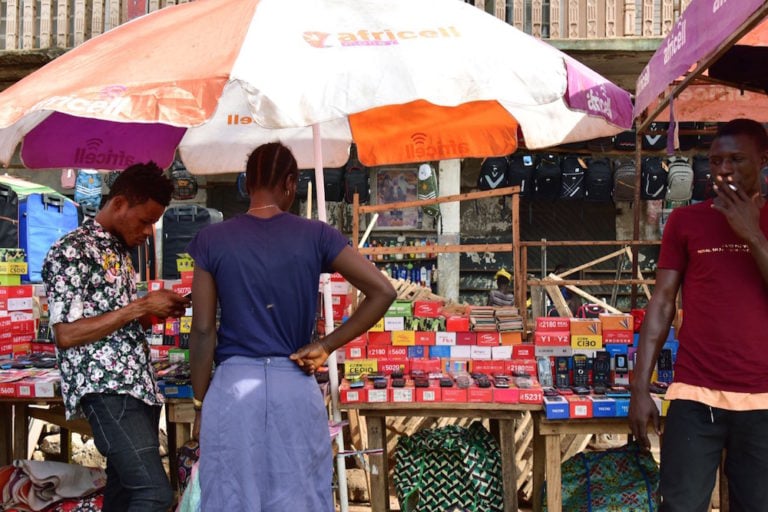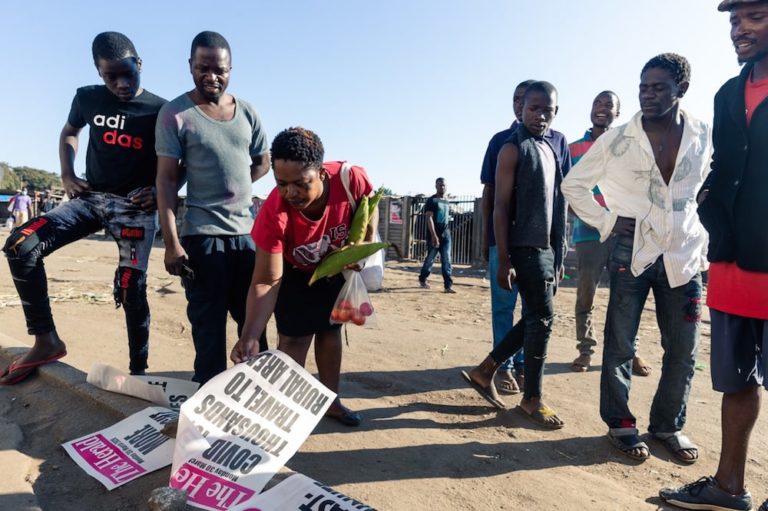Max Hamata fears for his safety following the publication of an article that reported that former president Sam Nujoma had been flown to South Africa for medical treatment.
(MISA/IFEX) – “Informanté” editor Max Hamata fears for his safety and that of his family members and staff following the publication of an article related to alleged health complications suffered by Namibia’s founding president, Dr. Sam Nujoma.
“Informanté”, an independent weekly tabloid, has been overwhelmed with legal threats following the article in its edition of November 4, 2010. The newspaper reported that Nujoma was flown from Windhoek to Cape Town, allegedly for treatment for an illness. The report was also prompted by Nujoma’s failure to attend two South West Africa People’s Organization party rallies that he was scheduled to address in northern Namibia ahead of the regional and local elections.
The article was allegedly received with mixed reactions by Nujoma’s medical doctor, lawyers and supporters. A local media report also recently quoted the Special Assistant to Nujoma, John Nauta, who referred to Hamata as a “witch”. In addition, numerous callers to national radio phone-in programmes have described the “Informanté” report as blasphemous.
In its edition of November 11, 2010, “Informanté” published a letter from Nujoma’s legal representatives, Sisa Namandje & Co. Inc., instructing the tabloid to retract the article and issue an unconditional apology, failure to which it would face legal action.
“Our client’s office has since established from one of your reporters that prior to the publication of the story you were alerted that there was no truth in the story you were planning to write – however for reasons only known to yourself, you proceeded with the publication of the story in breach of the basic and elementary journalistic standards and ethics without any regard to our client’s rights to dignity and privacy”, reads part of the letter.
Meanwhile Hamata has reacted to the threats, stating that as a public figure, Nujoma has no immunity from public scrutiny.
“People within SWAPO count on Nujoma to campaign for the party and continue to provide guidance and direction so his health is a matter of public interest,” Hamata responded in a recent editorial.
MISA continues to monitor the matter and is gravely concerned about alleged threats to Hamata’s safety and that of his staff and family. MISA aims to ensure that all grievances relating to the editorial conduct of the media are settled in the most amicable manner, preferably using the route of the Namibian Media Ombudsman and the Media Complaints Commission. These institutions present the most relevant mechanism for arbitration between the media and complainants. They were established by the media, civil society and the public and endorsed by the government to resolve conflicts between the media and any member of the public. MISA therefore appeals to the founding president to use this avenue if he feels aggrieved by the contents of the article in question.
MISA further takes cognisance of the overall responsibility of the media to scrutinise every issue relating to public figures in the interest of the public. The health of the founding president remains a matter of public concern and, should “Informanté” have credible information related to this, it would be serving its role in acting as a conduit of information to the public on matters of national concern, albeit in a professional manner in line with the basic tenets of ethical journalism.
MISA is further aware of privacy laws that protect, among others, information related to the health of members of the public. However, noting that the former president is a public figure and that “Informanté” reports were in the public interest and not intended to cause alarm or defame his person, MISA acknowledges Dr. Nujoma’s right to seek redress and again appeal to him to seek a most amicable resolution to the matter.
This incident, however, raises yet again the responsibility of all Namibian journalists to conduct themselves in a most professional and ethnical manner and, more importantly, to familiarise themselves with the law of defamation as provided for in national legislation.
MISA further takes this opportunity to reiterate the need for legislation that guarantees citizens access to information. The lack of such a legal guarantee prevents the media from accessing the information required to provide citizens with the information that they are entitled to. How then can the government and the public hold the media accountable when the very basic tool for their profession – information – is being denied to them?


